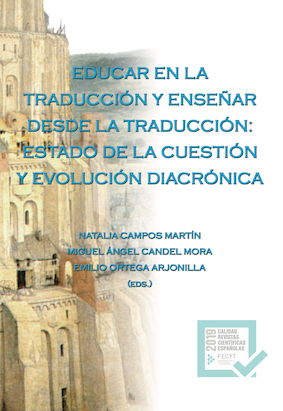Presentation
DOI:
https://doi.org/10.7203/qf.24.16319Keywords:
translation pedagogy, specialised translation, ciorpus studies, history of translation Abstract
Abstract
The eighteen articles in this monograph Educating in Translation and Teaching from Translation: The State of the Art and Diachronic Evolution are a reflection of the good health of translation studies and the growing interest in studying the relationships between teaching and translation from different perspectives. With this cartography of the didactics of translation, from the synchronous and diachronic point of view, the different approaches and theoretical foundations of current research in translation are therefore clear. From orientations and research methodologies based on corpus and the use of information and communication technologies to reveal patterns that will help both teachers and students, as well as students, to the revision of terminological studies, the comparison of translations, or analysis of questionnaires and interviews, this sample highlights the variety of methodologies of and the interdisciplinarity of translation studies. With regard to the field of application, the articles in this issue of Quaderns de Filologia: Estudis Lingüístics approach different didactic orientations such as legal, literary, medical translation, or specialized in fields such as architecture, tourism, science and technology or electrotechnology.
 Downloads
Downloads
Downloads
Published
How to Cite
-
Abstract653
-
PDF (Español)306
Issue
Section
License
 Este obra está bajo una licencia de Creative Commons Reconocimiento-NoComercial-SinObraDerivada 4.0 Internacional.
Este obra está bajo una licencia de Creative Commons Reconocimiento-NoComercial-SinObraDerivada 4.0 Internacional.
Authors who publish with this journal agree to the following terms:
- Authors retain copyright and grant the journal right of first publication with the work simultaneously licensed under a Creative Commons Attribution License that allows others to share the work with an acknowledgement of the work's authorship and initial publication in this journal.
- Authors are able to enter into separate, additional contractual arrangements for the non-exclusive distribution of the journal's published version of the work (e.g., post it to an institutional repository or publish it in a book), with an acknowledgement of its initial publication in this journal.
- Authors are permitted and encouraged to post their work online (e.g., in institutional repositories or on their website) prior to and during the submission process, as it can lead to productive exchanges, as well as earlier and greater citation of published work (See The Effect of Open Access).




